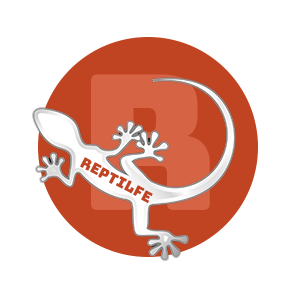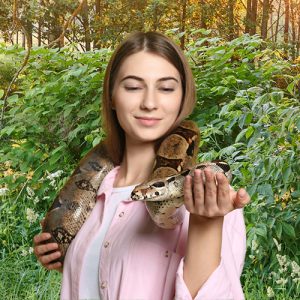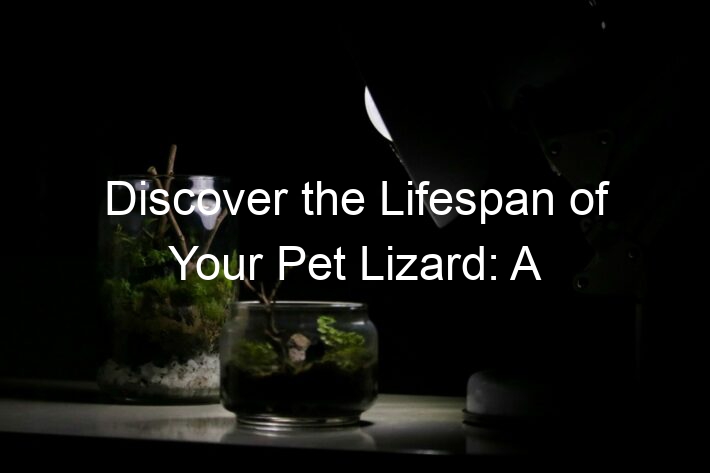Understanding Lizard Nutrition
Just like humans, lizards also need a balanced diet to stay healthy and active. Understanding the nutritional needs of lizards is essential for their well-being. In this section, we will explore the importance of a balanced diet for lizards, common misconceptions about lizard diet, and the nutritional needs of different lizard species.
- The Importance of a Balanced Diet for Lizards
A balanced diet is crucial for a lizard’s health. It helps them grow, reproduce, and maintain their energy levels. A balanced diet for a lizard typically includes a mix of insects, fruits, and vegetables, depending on the species. Lack of a balanced diet can lead to health issues like obesity, malnutrition, and even shorten their lifespan.
- Common Misconceptions About Lizard Diet
There are several misconceptions about what lizards should eat. One common misconception is that all lizards eat the same food. This is not true. Different species of lizards have different dietary needs. Another misconception is that lizards only eat insects. While many lizards do eat insects, some also eat fruits and vegetables.
- Nutritional Needs of Different Lizard Species
Different species of lizards have different nutritional needs. For example, Bearded Dragons need a diet rich in insects and vegetables, while Iguanas are primarily herbivores and require a diet full of fruits and vegetables. It’s important to research and understand the specific nutritional needs of your lizard species to ensure they are getting the right nutrients.
| Lizard Species | Diet |
|---|---|
| Bearded Dragon | Insects and vegetables |
| Iguana | Fruits and vegetables |
In conclusion, understanding lizard nutrition is key to keeping your pet healthy and happy. Always ensure that your lizard is getting a balanced diet and that you are aware of the specific nutritional needs of its species.
Lizard Diet: What You Need to Know
Understanding the dietary needs of your pet lizard is crucial to ensure its health and happiness. Lizards require a balanced diet, rich in essential nutrients. Let’s delve into the key nutrients that should be a part of a lizard’s diet.
Essential Nutrients in a Lizard’s Diet
There are three primary nutrients that are vital for a lizard’s well-being. These are:
-
- Proteins
Proteins are the building blocks of life. They are essential for growth, repair, and overall health. Lizards, especially carnivorous ones, require a significant amount of protein in their diet. This can be obtained from sources like insects and worms.
-
- Vitamins
Vitamins are necessary for various bodily functions, including boosting the immune system and aiding in digestion. Vitamin A, B, C, D, E, and K are all important for lizards. These can be found in fruits, vegetables, and commercial lizard food.
-
- Minerals
Minerals like calcium and phosphorus are crucial for a lizard’s bone health. A lack of these minerals can lead to serious health issues like Metabolic Bone Disease. Minerals can be found in a variety of foods, including vegetables, fruits, and certain types of insects.
Remember, the key to a healthy lizard is a balanced diet. By providing your pet with the right mix of proteins, vitamins, and minerals, you can ensure its well-being and longevity.
Healthy Lizard Food Options
When it comes to feeding your pet lizard, it’s important to understand that not all food is created equal. There are three main categories of food that are considered healthy for lizards. Let’s take a closer look at each one.
-
- Insects and Worms
Many lizards are insectivores, meaning they primarily eat insects. This can include crickets, mealworms, and even certain types of roaches. These creatures provide your lizard with the protein it needs to stay healthy and active. It’s important to note that not all insects are suitable for all types of lizards. Always make sure to research what insects are safe for your specific pet.
-
- Fruits and Vegetables
While not all lizards eat fruits and vegetables, many do enjoy them as part of a balanced diet. Some lizards, like the Green Iguana, are primarily herbivores and require a diet rich in leafy greens and other vegetables. Fruits can also be a great source of hydration and vitamins for your lizard. However, remember that not all fruits and vegetables are safe for lizards. Always do your research before introducing a new food into your lizard’s diet.
-
- Commercial Lizard Food
Commercial lizard food can be a good option for those who want to ensure their pet is getting a balanced diet. These foods are often fortified with vitamins and minerals that lizards need to stay healthy. However, it’s important to remember that not all commercial foods are created equal. Always look for products that are high in protein and low in fillers. Additionally, commercial food should not replace fresh food entirely, but can be used as a supplement.
In conclusion, a healthy lizard diet can include a variety of insects, fruits, vegetables, and commercial foods. Always remember to do your research and consult with a vet or a lizard expert to ensure your pet is getting the nutrition it needs.
Feeding Tips for Your Lizard
Understanding how often to feed your lizard is crucial for their health and happiness. The frequency of feeding can vary based on the age and species of your lizard. Here, we will discuss the feeding frequency for both juvenile and adult lizards.
How Often to Feed Your Lizard
Feeding your lizard the right amount at the right time can make a big difference in their health. Let’s break it down by age:
-
- Feeding Frequency for Juvenile Lizards
Juvenile lizards are growing rapidly and require more frequent feedings. It is generally recommended to feed them once a day. However, the exact quantity and type of food will depend on the species of the lizard. For instance, a juvenile bearded dragon should be fed a diet of 80% insects and 20% plants.
-
- Feeding Frequency for Adult Lizards
Adult lizards, on the other hand, do not require daily feeding. Most species do well with feedings every 2-3 days. The diet of an adult lizard should be balanced and varied, consisting of appropriate proportions of insects, plants, and fruits. For example, an adult bearded dragon’s diet should consist of 20% insects and 80% plants.
Remember, these are general guidelines. Always consult with a reptile expert or a vet to determine the best feeding schedule and diet for your specific lizard.
Feeding your lizard properly is a key part of ensuring their health and happiness. By understanding their dietary needs, you can provide the best care possible for your scaly friend.
Best Time to Feed Your Lizard
Knowing when to feed your lizard is just as important as knowing what to feed them. Lizards, like many other animals, have specific feeding times that align with their natural habits and body rhythms. Let’s explore the best times to feed your lizard.
-
- Morning Feeding
Many lizards are most active during the morning hours. This is when they are typically out hunting for food in the wild. Feeding your lizard in the morning can align with their natural hunting instincts. It’s a good idea to feed your lizard shortly after they wake up, giving them plenty of time to digest their food throughout the day. Remember, a well-fed lizard in the morning is likely to be more active and healthier.
-
- Evening Feeding
While morning feeding aligns with many lizards’ natural habits, some lizards may prefer eating in the evening. This is especially true for nocturnal lizards, who are most active after the sun goes down. If you have a nocturnal lizard, consider feeding them in the late afternoon or early evening. This will give them time to eat and digest their food before their active night period begins. Always observe your lizard’s behavior to determine their preferred feeding time.
In conclusion, the best time to feed your lizard depends on their species and individual habits. Whether you feed your lizard in the morning or evening, the most important thing is to maintain a consistent feeding schedule. This will help your lizard stay healthy and happy.
Lizard Health and Happiness: The Role of Diet
When it comes to the health and happiness of your pet lizard, diet plays a significant role. A balanced diet can ensure your lizard remains active, has healthy skin and eyes, and maintains regular eating and drinking habits. Let’s delve into the signs of a healthy lizard that indicate a good diet.
Signs of a Healthy Lizard
Knowing the signs of a healthy lizard can help you monitor your pet’s health and adjust their diet as needed. Here are some key indicators:
- Active and Alert: A healthy lizard is usually active and alert. They should show interest in their surroundings and respond to stimuli. If your lizard is lethargic or unresponsive, it may be a sign of poor nutrition.
- Healthy Skin and Eyes: The skin and eyes of your lizard can tell a lot about their health. Healthy skin should be smooth and free of sores, while the eyes should be clear and bright. Dull eyes or rough skin may indicate a lack of essential nutrients in their diet.
- Regular Eating and Drinking Habits: Lizards with a balanced diet will have regular eating and drinking habits. They should eat their food with enthusiasm and drink water regularly. If your lizard is not eating or drinking properly, it could be a sign of dietary issues.
Remember, these are general signs of a healthy lizard. Each species may have specific dietary needs and health indicators. Always consult with a reptile expert or a vet for personalized advice about your pet’s diet and health.
Common Health Issues Related to Poor Nutrition
Just like humans, lizards can suffer from health problems if they do not receive the right nutrition. Let’s take a look at some of the most common health issues that can arise from poor diet in lizards.
-
- Metabolic Bone Disease
Metabolic Bone Disease, or MBD, is a serious condition that can affect lizards who do not get enough calcium in their diet. This disease can cause a lizard’s bones to become weak and deformed, making it difficult for them to move around. In severe cases, MBD can even be fatal. To prevent this, it’s important to ensure your lizard’s diet includes plenty of calcium-rich foods.
-
- Obesity
Just like in humans, obesity is a serious health concern for lizards. Overfeeding your lizard or feeding them the wrong types of food can lead to weight gain, which can in turn lead to other health problems like heart disease and diabetes. To keep your lizard at a healthy weight, make sure to feed them a balanced diet and provide plenty of opportunities for exercise.
-
- Vitamin and Mineral Deficiencies
Vitamins and minerals are essential for a lizard’s health. Without them, your lizard may suffer from a range of health problems, from weak immune systems to poor skin health. To prevent this, it’s important to provide a varied diet that includes all the necessary vitamins and minerals your lizard needs to stay healthy.
Remember, a healthy diet is key to a healthy lizard. By providing your lizard with the right nutrition, you can help prevent these common health issues and ensure your lizard lives a long, happy life.
Case Study: The Impact of a Balanced Diet on a Lizard’s Health
Understanding the importance of a balanced diet for a lizard is not just about knowing what foods to provide. It’s about understanding the direct impact that diet has on their health and wellbeing. In this section, we’ll delve into a case study that highlights this impact.
-
- Introduction to the Case Study
Our case study involves a common pet lizard, the Bearded Dragon. The Bearded Dragon was chosen because of its popularity among pet owners and its well-documented dietary needs. The study spanned over a period of six months, during which the lizard’s diet, health, and behavior were closely monitored.
-
- Observations and Findings
Initially, the Bearded Dragon was fed a diet lacking in variety and essential nutrients. It displayed signs of lethargy, slow growth, and dull skin. After a month, we introduced a balanced diet, rich in leafy greens, insects, and fruits. The transformation was remarkable. The lizard became more active, its growth rate improved, and its skin became vibrant. The table below summarizes the changes observed:
| Aspect | Before Balanced Diet | After Balanced Diet |
|---|---|---|
| Activity Level | Low | High |
| Growth Rate | Slow | Normal |
| Skin Condition | Dull | Vibrant |
-
- Key Takeaways
The case study clearly demonstrates the profound impact a balanced diet can have on a lizard’s health. Not only does it affect their physical growth and appearance, but it also influences their behavior and overall happiness. As a lizard owner, providing a balanced diet is not just a responsibility, it’s a key to your pet’s health and happiness.
In conclusion, a balanced diet is not just about providing a variety of foods. It’s about ensuring that your lizard gets the right nutrients in the right proportions. As our case study shows, a balanced diet can make a world of difference to your lizard’s health and wellbeing.
Conclusion: The Importance of a Balanced Diet for Your Lizard’s Health and Happiness
As we’ve journeyed through the fascinating world of lizard nutrition, we’ve learned that a balanced diet is not just important, but crucial for your lizard’s health and happiness. Let’s summarize our key findings and share some final thoughts on feeding your lizard.
-
- Summary of the Lizard Nutrition Guide
Understanding lizard nutrition is the first step towards ensuring your pet’s health and happiness. Lizards are not one-size-fits-all eaters. Different species have different dietary needs, ranging from herbivores to insectivores and omnivores. The key to a balanced diet is variety, ensuring your lizard gets all the necessary nutrients.
Remember, the right balance of proteins, fats, and carbohydrates is essential. Also, don’t forget about vitamins and minerals, especially calcium and vitamin D3, which are vital for bone health. Always ensure fresh water is available for your lizard.
-
- Final Thoughts on Lizard Feeding Tips
Feeding your lizard isn’t just about what you feed them, but also how and when. Regular feeding schedules, portion control, and observing your lizard’s eating habits are all part of responsible lizard care.
Remember, overfeeding or underfeeding can both lead to health problems. Always monitor your lizard’s weight and adjust their diet as necessary. And don’t forget, treats are okay occasionally, but they shouldn’t make up the bulk of your lizard’s diet.
In conclusion, a balanced diet is the cornerstone of your lizard’s health and happiness. By understanding their nutritional needs and feeding them responsibly, you can ensure your scaly friend lives a long, healthy, and happy life.




